'Homeland' showrunner Alex Gansa on the show's future and what he has in common with President Trump
As the show’s seventh and penultimate season premieres in February on Showtime in the US, followed by Channel 4 in the UK, the show's writer and producer discusses attempts to parallel current events in the long-running spy thriller
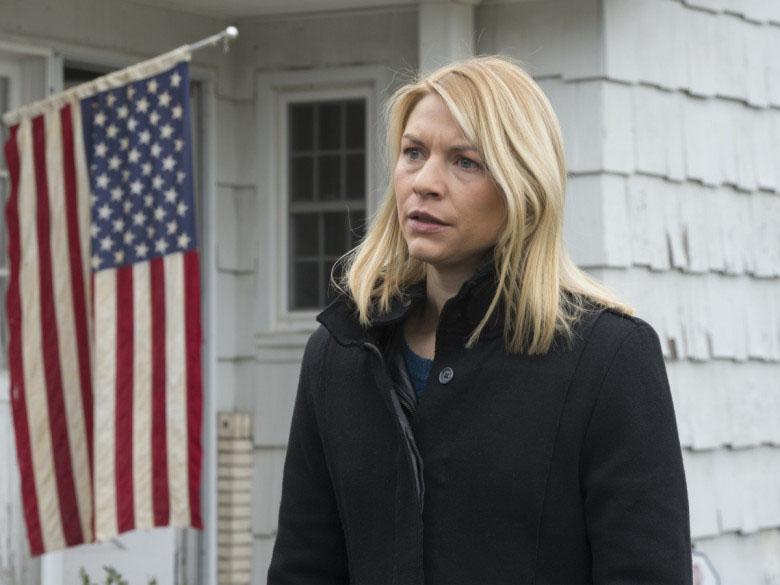
Your support helps us to tell the story
From reproductive rights to climate change to Big Tech, The Independent is on the ground when the story is developing. Whether it's investigating the financials of Elon Musk's pro-Trump PAC or producing our latest documentary, 'The A Word', which shines a light on the American women fighting for reproductive rights, we know how important it is to parse out the facts from the messaging.
At such a critical moment in US history, we need reporters on the ground. Your donation allows us to keep sending journalists to speak to both sides of the story.
The Independent is trusted by Americans across the entire political spectrum. And unlike many other quality news outlets, we choose not to lock Americans out of our reporting and analysis with paywalls. We believe quality journalism should be available to everyone, paid for by those who can afford it.
Your support makes all the difference.The gritty spy thriller Homeland has a way of incorporating very real elements – like the “fake news” phenomenon, tension between a president and the intelligence community, and the war on terror – into its high-drama story lines. The show’s seventh and penultimate season, which premieres 11 February on Showtime, looks like more of the same ripped-from-the-cable-chyrons action.
We chatted with showrunner, writer and producer Alex Gansa about how he (sometimes) nails the details of intelligence-gathering, filming this season in Richmond, Virginia, and the unexpected thing he has in common with President Donald Trump.
Tell me about where things are.
We are in the middle of filming episode 8 of a 12-episode order.
What was in the news when the show was being written?
Well, now you’re testing my memory – so much has happened, my God! It is astonishing. Not only terrifying that it’s all real, but terrifying to try to parallel on our show, and we’re worried that the news will outpace the story. We started to think about the season in late April. That’s when we take our annual field trip to Washington, DC, and sit down with all our consultants and people in the intelligence community and a number of journalists.
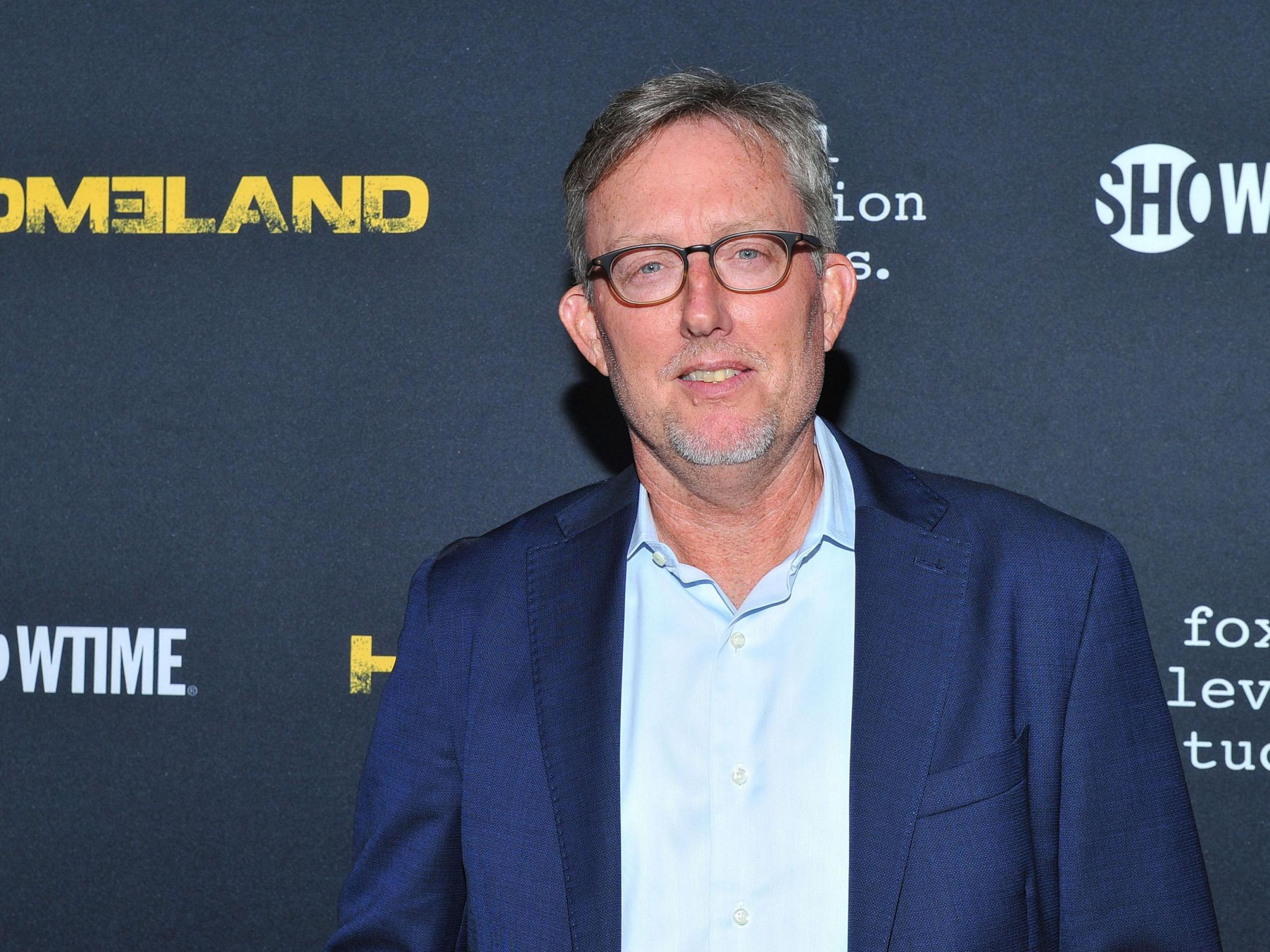
In previous years, we’ve had people who work in the White House and State Department, although we weren’t privy to that this time around. Donald Trump had been president for a couple of months and when we were sitting down in Washington, DC, at that moment, and North Korea was really on the table. North Korea doesn’t figure in our story this year, but there was a tremendous amount of concern about what the administration was planning on the North Korean Peninsula.
So what are the ways in which current events have found their way into the upcoming season?
You have an embattled and isolated president believing that the “deep state” is against him. In our story, we have a president who feels the same way.
The main way is this antagonism between a newly elected president and the people that populate the government – the people who are there from one administration to the next. It’s that essential conflict between these two camps that has really influenced the show. And just how divided and polarised America is right now. When you find democracy split down the middle like that, it becomes a very vulnerable target for other countries who might want to weaken us. So that’s also become a big part of the story this season.
So is this season like Donald Trump’s fever dream?
The show isn’t about the Trump administration at all. It’s its own fiction. But part of the exciting thing about writing Homeland is we are writing the show in real time, more or less, so we can’t help but have what’s going on in the real world influence the story and the way we tell the story. When a big piece of news breaks, sometimes it can’t help but lend itself to the story. It’s fun to write. And we can educate people at some level about the internal dynamics of how Washington works.
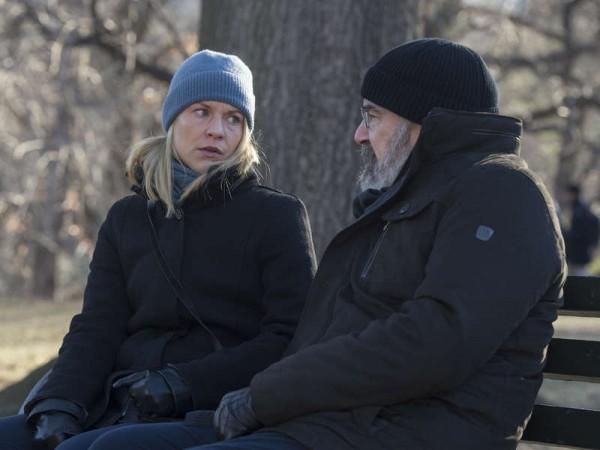
Tell me a little bit more about these field trips.
We go for five days – we bring all the writers, we bring Lesli Linka Glatter, who is our executive producer, and we bring Mandy Patinkin and Claire Danes. It’s about 10 to 12 people, and we take up residence in an old club in Georgetown and we entertain people from nine to six every day.
It could not have been more different this year than in the past. In the past, we’d have people from the intelligence community brief us and then we’d have a famous Washington Post reporter or a famous New York Times reporter come in and completely and utterly take up a counter-position to what we’d just heard. For the first time this year, in a strange way, the intelligence community and the Fourth Estate were on the same page. Two distinct communities that believe themselves to be fact-oriented had aligned in a way we hadn’t seen during the last four years we’d done this. Clearly, there was a lot of leaking going on to journalists from the intelligence community and that was a partnership we had not witnessed before this year.
Actually, it lends a little credibility to the paranoia inside of the Trump White House that there were major forces allied against him.
In the past, we’d be searching around for a story to tell. Like in season 4 when we wanted to put Carrie in a case officer position overseas, what we were asking in the room was: “If you were going to be posted, where would you want to be posted?” And at the time, everyone said Afghanistan or Pakistan, and that’s where we set the story.
In season 6, since we knew we would be airing during the transition, we learned a lot about the transition from one presidential administration to the next. The time we spend in DC could not be more influential. This season, of course, it was all about Trump – that’s all we talked about the whole time.
You have lots of high-profile fans in the government, like former Presidents Obama and Clinton, and in the intelligence world – to what extent does that make you feel pressure?
It is a little intimidating to know that those people are watching. But we can’t help but get things wrong. The dramatic licence we have to take will be met with eye rolls from some of our consultants. But what is most rewarding to us is that we are confident that although we might not get the letter of this stuff right, we are most often getting the spirit of it right. That’s where we draw the line.
What’s it been like filming in Virginia?
Richmond is fantastic. It’s a great stand-in for DC. We’re using a lot of the official buildings. Shot from the right angle, you really could be outside the White House or outside the US Capitol. You could be on the Mall. It’s amazing how it doubles well. Plus we have establishing shots from the real DC so it’s a very easy sleight of hand to pull off.
The crews there are great. [Former Governor of Virginia] Terry McAuliffe has been so supportive, and the tax breaks there have made it possible to shoot in Richmond. The city has been happy to have us and we’re happy to be there. They had a cocktail party and we got to meet a lot of business people and the mayor of Richmond (that’s the city’s youngest-ever mayor, 36-year-old Levar Stoney) – he’s certainly an up-and-comer.
And is the food not great? The river is great to walk along and kayak on.
We are the only series shooting there – it certainly would be different shooting in New York where there are 150 series shooting at the same time. We are kind of the big dogs in town.
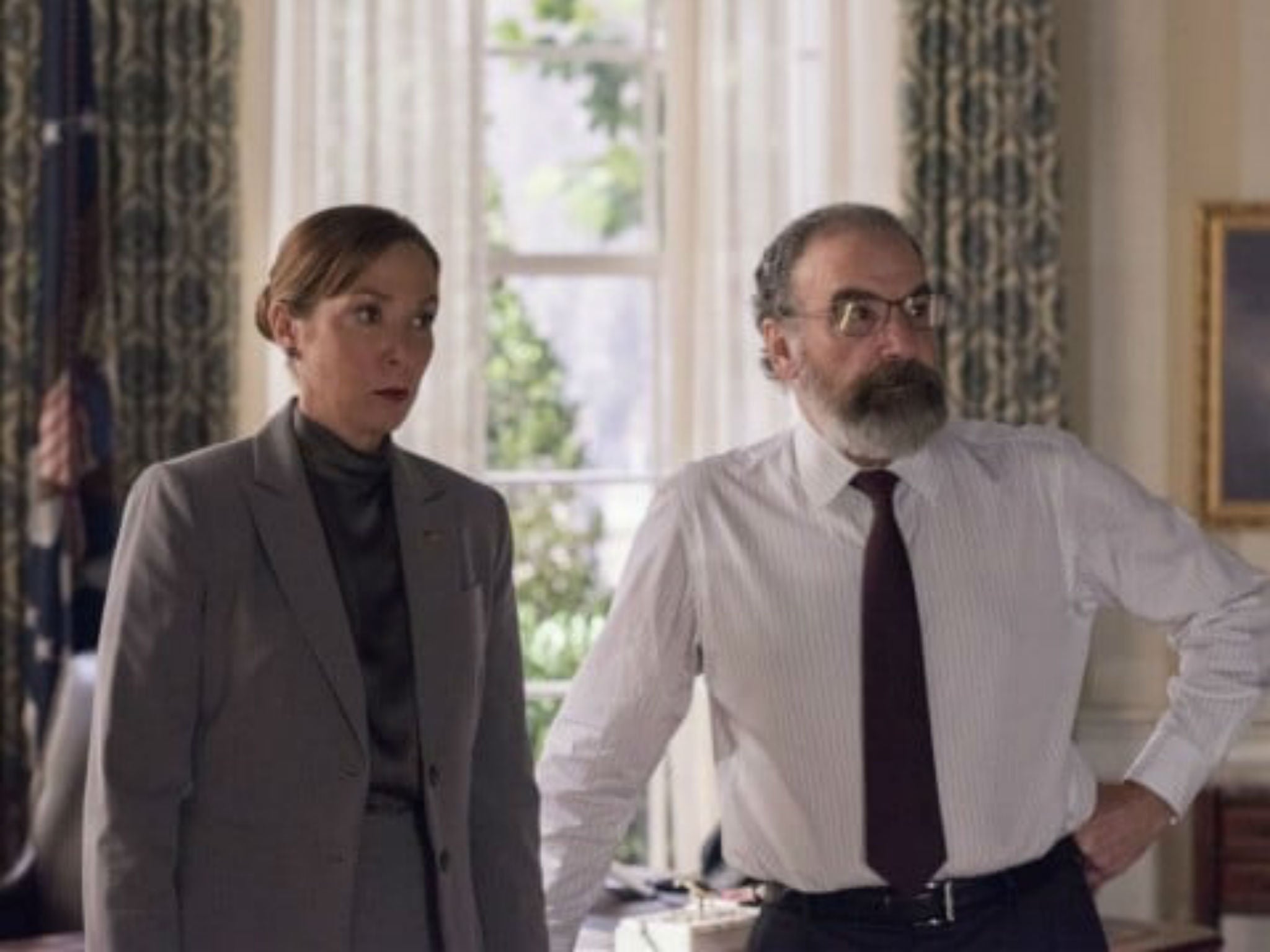
Where does the show go from here?
We’re doing one more season, and we’ve already started thinking. We’d love to take Homeland back to where it started, in Israel. Will that be feasible? We’ll have to see.
Why set this season in Washington?
If Hillary Clinton won, would we be filming Homeland in DC now? I think not. There is something compelling and, for some of us, disturbing about what’s happening to the country. It gives us an opportunity to comment on that by telling the story there. If Hillary Clinton were president, it would be business as usual. It wouldn’t be this 24-hour news cycle where something crazy happens every day. I don’t think there would be such attendant anxiety about where we are, and that lends itself to a thriller.
Does it ever bug you that people focus so much on what in the show is based on real life? Are you ever like, “c’mon, it’s fake!”?
I’m not as offended by that as I am by people who think we’re Islamophobic or – you know, the left is accusing us of being Islamophobic and the right is always accusing us of being soft on the Muslim community. People read into the show a political agenda that I don’t think exists. What we are trying to do is to take a character, Carrie Mathison, who was an intelligence officer and the one thing we’ve learned in talking to intelligence officers and people in the intelligence community is that, think what you want about them, these are intensely patriotic people for the most part who spend 24 hours a day trying to keep us safe.
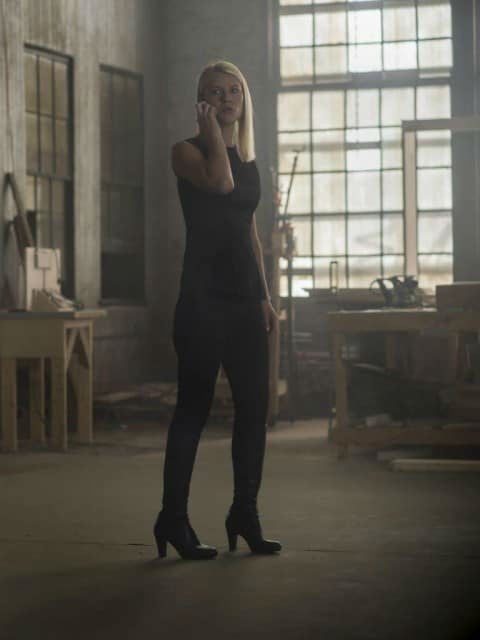
Do you ever imagine President Trump watching the show?
Something tells me he’s not watching hour-long dramas. I may be wrong – if he was watching this show, that would be fantastic. When Obama watched the show we were all incredibly honoured. If Trump is, I’d love to have a conversation with him about it.
What do you make of someone who doesn’t seem to watch non-news television?
I actually have to put myself in that category, too! I am literally too busy to watch television. I’m looking forward to when I can watch all these fantastic shows and relax and enjoy them. I haven’t watched a single episode of Game of Thrones. I have not watched an episode of Downton Abbey.
The seventh series of ‘Homeland’ will return on Showtime 11 February and on Channel 4 the following week
© Washington Post
Join our commenting forum
Join thought-provoking conversations, follow other Independent readers and see their replies
Comments